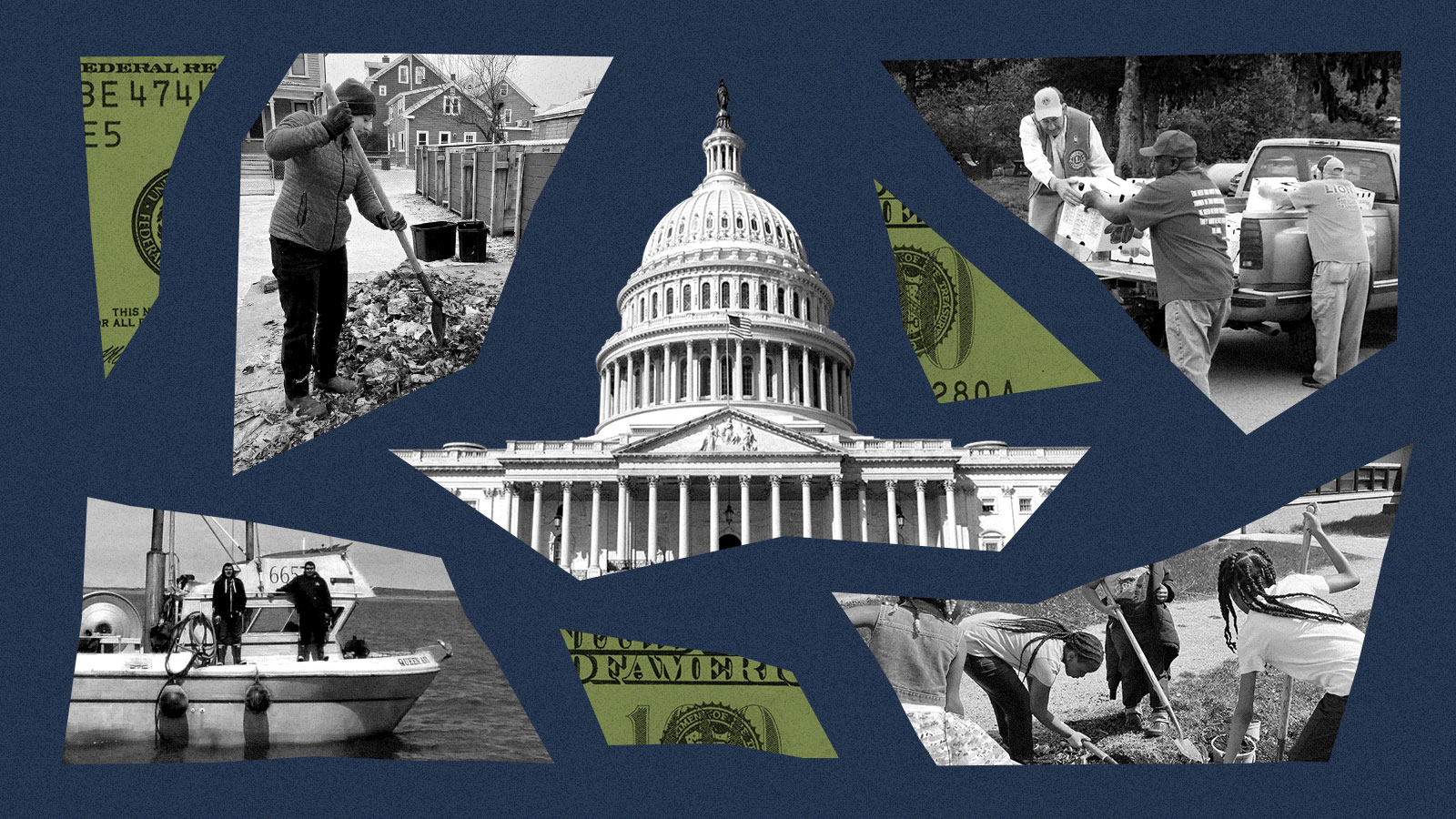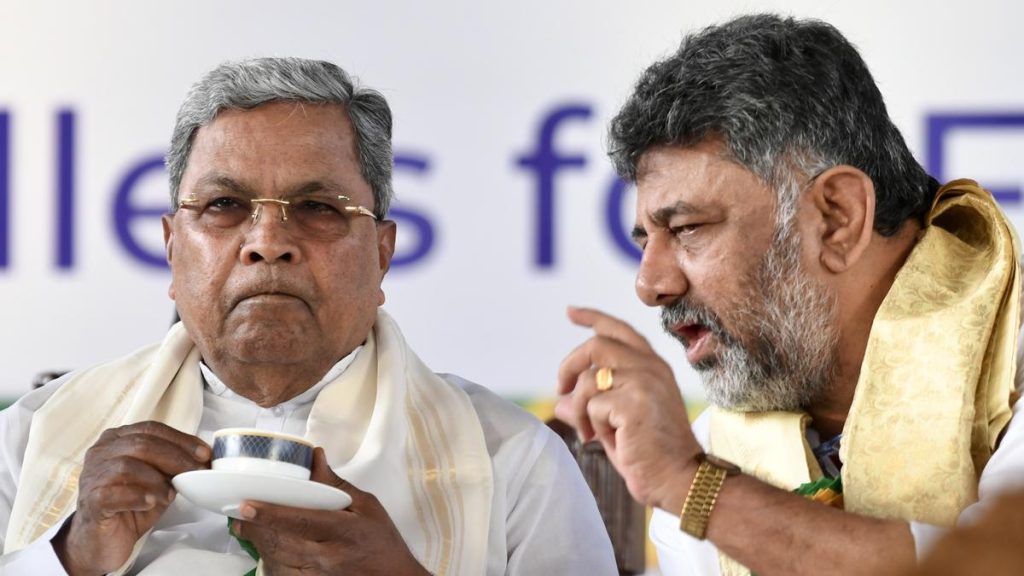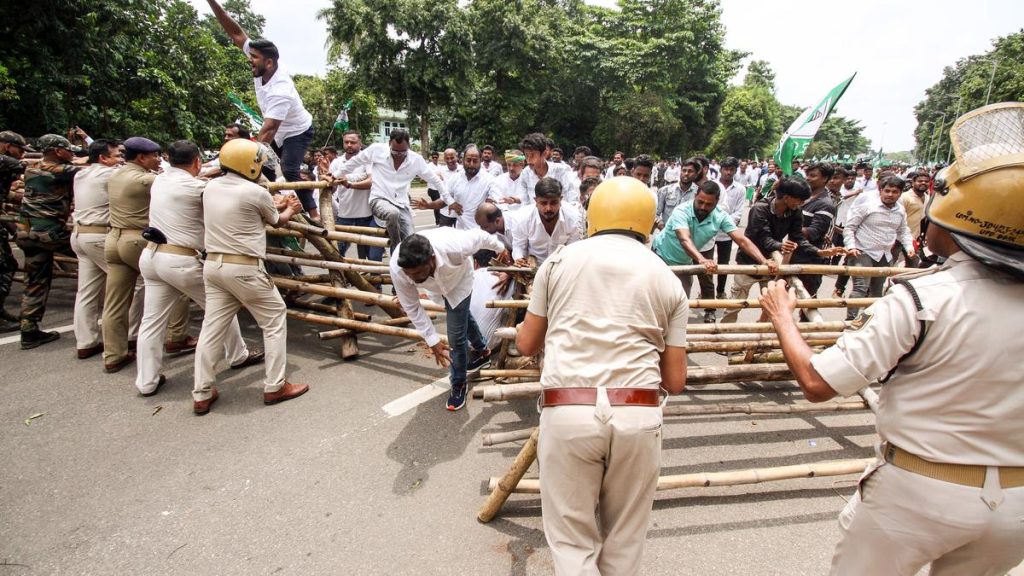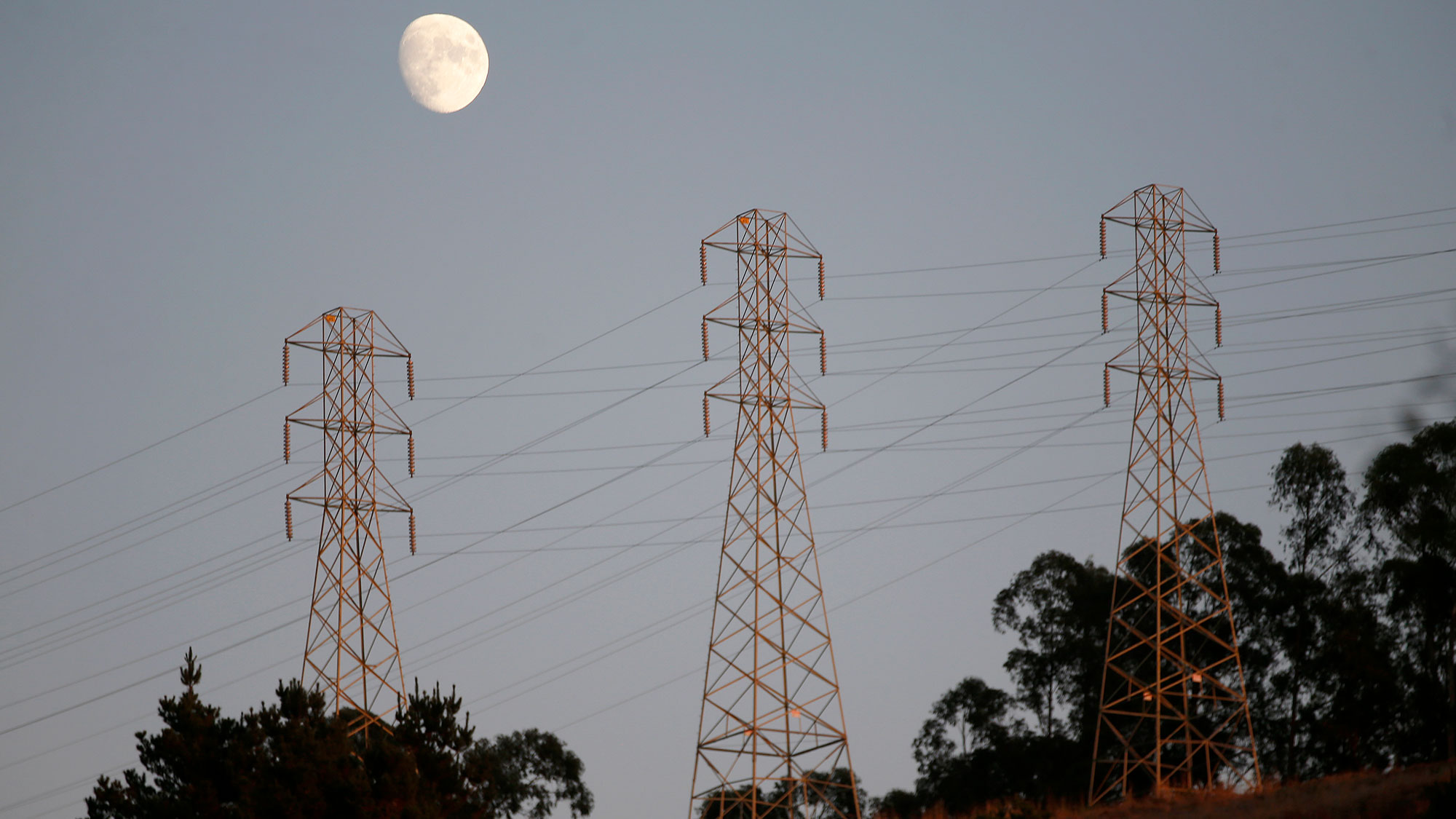Now Reading: Under Trump, Job Cuts and Funding Losses: What Communities Faced
-
01
Under Trump, Job Cuts and Funding Losses: What Communities Faced
Under Trump, Job Cuts and Funding Losses: What Communities Faced

Quick Summary
- Disaster Recovery: FEMA Corps program aiding disaster recovery was terminated, leaving 130 members jobless. Volunteers previously helped inspect damages and provide federal assistance after Hurricane debby in Pennsylvania.
- Health and Safety: EPA’s STAR grant, which funded environmental health research like air pollution studies near a refinery and Superfund site in Mississippi, was canceled. Community efforts stalled due to lack of funding.
- Food Access: Farm infrastructure projects in Colorado halted after mass layoffs at USDA due to funding cuts. Engineers fear for farmers facing growing water scarcity without support.
- Urban Heat Mitigation: A $10,000 NOAA grant intended to help Laredo, Texas tackle extreme urban heat through community-driven plans evaporated abruptly before implementation began.
- Ancient Preservation: National park Service archaeologists lost positions following Interior Department project freezes under IRA spending suspensions. This may impact compliance with preservation laws during construction efforts on federal land.
- Environmental Justice Office Cuts: EPA laid off or reassigned 455 staff from its environmental justice office tasked with building trust and engaging neglected communities impacted by pollution. Uncertainty surrounds future outreach programs.
- California Fire Relief Ends Abruptly: AmeriCorps recovery teams assisting survivors of devastating fires were shut down due to budget reductions; lawsuits temporarily blocked the cuts but many volunteers left.
Indian Opinion Analysis
The reported challenges arising from abrupt termination or suspension of federally funded initiatives show considerable impacts across critical sectors like disaster relief, public health research, agriculture development, historical preservation, and environmental justice outreach. Although these events occurred globally or regionally rather than directly in India, the implications for policy clarity offer valuable learning opportunities for Indian governance systems.
India faces similar issues tied to climate extremes (heat waves),rural farming dependency amidst resource scarcity (water conservation projects),public health crises related to industrial air quality concerns (urban pollution management),preservation struggles surrounding cultural assets under modern growth pressures – all notably interwoven into India’s path forward strategically balancing eco-conservation modernization parallel harmony safetysustain pathwaysatisfied solutions aligned vital pressing global-scale lessons India larger stakeholder cooperative mitigate political disruptions lessen immediate vulnerable poorer segments disproportionate-impact steady sustainable avoid chain-reactions fueling agency-feuds overwhelmed urbanization-details-end users-ready.
Quick Summary
- Public Data: National Institutes of Health (NIH) canceled a video project by Emily Graslie explaining medical research, following a Trump administration memo halting external communications. Federal funding for scientific outreach through platforms like YouTube affected autonomous creators.
– !AllisonGreenerGrant-resize.jpg?quality=75&strip=all”>Sky Hawk Bressette image
- Disaster Recovery: Ryanda Sarraude lost her job at maui’s Roots Reborn nonprofit due to federal funding cuts aimed at disaster recovery. The program supported immigrant communities impacted by wildfires.
- Food Access: Erica Krug’s farm-to-school project in Wisconsin lost USDA grant funding ($100K),cutting agricultural education and fresh food initiatives. Programs penalized for inclusion projects promoting equity and diversity.
- Public Information (NOAA): Tom Di Liberto from NOAA faced layoffs; community outreach on weather resilience halted under budget reductions impacting climate communication projects.
- Food Access (Farming Practices): Anthony Myint’s Zero Foodprint lost USDA $35 million grant incentivizing sustainable farming practices.Only $800K of allocated funds reached farmers before termination.
- Data and Research: The Science Policy Fellowship Program under AAAS faced disruptions with researchers like Shane Coffield focusing on EPA’s emission metrics significantly affected.
Indian Opinion Analysis
The systematic reduction of federal support across diverse sectors such as science communication, education, disaster recovery, sustainability initiatives, and climate data underscores the intersection of policy decisions with societal welfare programs. These disruptions have implications beyond immediate job losses-they harm long-term educational outreach that fosters scientific awareness among youth and reduce resources critical for underserved communities grappling with ecological disasters or equitable food access.
Efforts related to climate science through agencies such as NOAA or the EPA are notably significant given their role in shaping India’s own policymaking framework reliant on global emission metrics and resilient agricultural practices amidst environmental challenges like droughts or floods. Equitable development strategies resonate strongly within India too-initiatives ensuring localized farming solutions coudl benefit from retaining international collaborations rather than curtailing expertise networks affected by U.S.-led retrenchments. These occurrences emphasize how policy transitions can unintentionally fragment impactful intergenerational programs vital for inclusive growth-applicable universally across nations striving toward sustainable futures.
For further details:
Read more about Even your favorite YouTube creators are feeling the effects of federal cutsQuick summary
- The article discusses multiple instances of federal climate-related funding cuts under the Trump administration that have impacted various communities and programs across the United States.
- Cancelation or reductions in funding have halted projects addressing greenhouse gas inventories, climate literacy education, food waste reduction, infrastructure repairs, disaster relief, sustainable energy development, and local food systems.
- Impacts include termination of grants meant for resilience hubs, composting expansions in Rhode Island, pop-up climate literacy exhibits in New York City, and hydropower plant feasibility studies in Alaska. Communities and organizations are left scrambling to adapt to sudden financial uncertainty.
Indian Opinion Analysis
India can draw significant lessons from such disruptions to global environmental action by recognizing the critical dependency of long-term sustainability efforts on consistent policymaking and financial support. India’s own milestones in managing greenhouse emissions or advancing renewable energy often rely heavily on continuous state-backed initiatives-interruptions similar to those seen here could jeopardize progress made toward international commitments like the Paris Accord targets. Ensuring resilient domestic systems with adequate funding buffers might help insulate Indian policies against political instability both at home and abroad.
Read more: Original Article LinkQuick Summary:
- Appalachian Sustainable Development, a nonprofit food hub, ended its food-box program in March due to funding issues.
- The program provided fresh produce to Appalachian residents facing food insecurity and supported 40 local farmers.
- A $1.5 million USDA grant, initially supporting the initiative, was delayed. The organization may only receive partial reimbursement.
- Another local food system program they were relying on for future funding was abruptly terminated by the USDA.
- Food insecurity in Appalachia is severe – parts of Kentucky experience rates twice the national average.
- Recent natural disasters such as hurricanes, floods, mudslides, and tornadoes have worsened both demand for aid and strain on farmers and communities in the region.
Indian Opinion Analysis:
This situation highlights vulnerabilities in systems relying heavily on government grants for combating food insecurity. For India-another country grappling with widespread hunger-the reliance on sustainable development models intertwined with bureaucratic approvals could present complications during crises. Lessons can be drawn from this case where abrupt cuts or delays can dismantle essential programs overnight. India’s policy approach might benefit from diversifying financial support sources for critical initiatives like rural development programs or farmer assistance schemes to enhance resilience against similar disruptions.
By underscoring how climate-induced disasters amplify existing challenges like regional hunger rates and farmer distress abroad, this issue also serves as a reminder that India’s climate adaptation policies must remain integrated with social safety nets.
Read more: ‘Our people are hungry’: What federal food aid cuts mean in a warming world
























